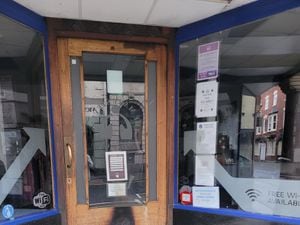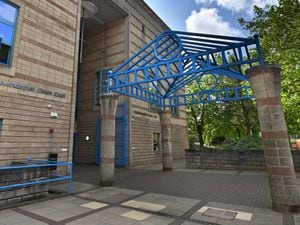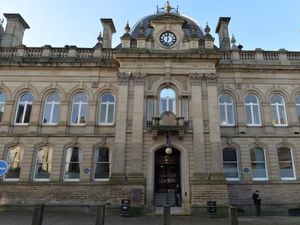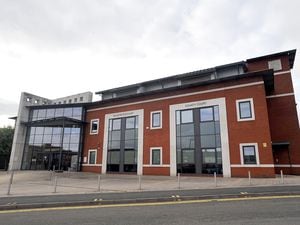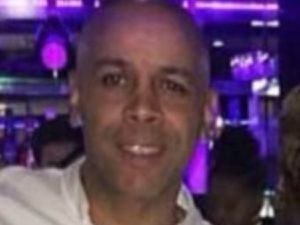What’s your emergency?: See inside West Mercia Police's control room
Thousands of people phone the police’s emergency numbers each week, and expect their calls to be answered – and that’s a hard thing to manage.
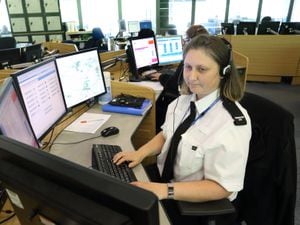
One, two, three... the number of calls that are waiting to be answered at the police operations and communications room creeps up.
The digital display at the back shows exactly how many calls are waiting to be answered – and their estimated waiting time.
Handlers, watching screens displaying call details and maps, are constantly on the phone answering calls from members of the public.
“I have taken 14 calls already,” says Karole Chacksfield, a call handler who is two hours into her shift. “The most I’ve had in a shift is 44. But there are people here who will do 60, it depends.”
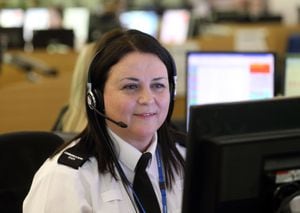
This is the control room at West Mercia Police and Warwickshire Police’s headquarters at Hindlip, near Worcester, where 375 999 calls and 1,300 calls to 101 are answered every day.
Mum of two Karole has been a handler for nearly a year. She had always wanted to be a police officer, but it never quite worked out.
“We’ll get the call from the operator and people will either still be on the line or they may have cleared the line,” says Karole. “We will talk to them if they are still on the line, but if they have cleared the line then we have a playback facility.”
Because of the nature of incoming calls to the police, everything is treated with the utmost severity. Even calls where someone has hung up are played back, and handlers then decide to whether the call should be followed up.
“I suppose it is quite high pressure,” she says. “We can hear what they’ve said on the call, and we listen to hear a disturbance or something else.
“Initially we call them back and if there is no answer then we can do checks on the number to see if there’s been any previous calls from that number. However, if it’s a number we’ve never had a call from before we will call back four times.
“Sometimes it will be a pocket dial or something. If as a call handler we hear something we will forward it to a supervisor who will do further checks. If we make a judgement that it doesn’t sound right then we have that.”
Karole believes a lot of making those quick judgement comes down to common sense, and says she would always err on the side of caution.
Call handlers have an unpredictable job. They never quite know what the nature of a call might be – a crash, a missing person, an assault, or worse.
“We have to remain calm. Generally people who do call you can call them down if they are panicking,” says Karole.
“Generally you can get the information you need while empathising with what has gone on. We do need to get to the job quickly so it’s about talking to them in a certain manner. If it’s a 999 call and an emergency we will stay on the line. I have stayed on the line for 20 minutes until the officers have arrived.
“You talk to people the whole time. I have had long conversations about stuff that I don’t know anything about. I spoke to one lady about her knitting, to keep her calm as she was worried someone was getting into her house. You have to find a common ground as they are a stranger and I’m a stranger to them. I always think what would I want someone to say if I needed to call.”
But there are moments where things can get tough for callers.
“I’ve only had one call where I’ve had to leave the room so far,” said Karole. “It was domestic violence and the woman said that if she gets beaten up later then it would all be my fault.”
Call handlers will make a decision on how to grade the calls they receive. Grade one is for the immediate dispatch of officers, grade two is dispatch within the hour, grade three will send reports to other departments in the force and grade four is just for general information.
Once handlers have dealt with calls they then get sent through to a team of dispatchers at the other end of the control room.
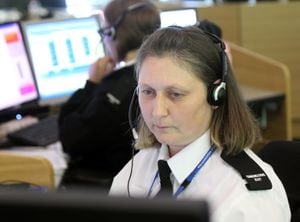
Nikki Leese is a dispatcher and she sits in front of a screen of jobs, a CCTV monitor and live map showing where all the officers and different units are across the West Mercia patch.
“I make the call on how we respond,” she says. “It depends where our officers are and what they are doing. Does something really warrant a grade one. Am I going to send an officer out on blues to risk their life for the public’s life if it doesn’t warrant a grade one?”
It’s not just officers Nikki can dispatch, but there are also dog units and helicopters.
“We speak with officers via the radio at the scene,” she says. “If they feel they need another unit because the person they are with is quite aggressive, violent or done a runner, then we might need the helicopter dispatched.
“You have to think on your feet. It’s fluid, fast-paced and depending on what emergency you are going to you can have a lot of information coming at you and you have to be quick to process it all.
One of the big challenges for the police control room is the misuse of the 999 emergency line. Chief Inspector Gareth Morgan oversees operations at Hindlip.
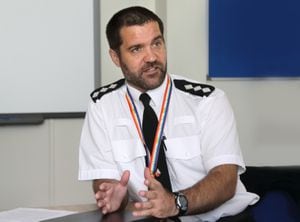
“It can be a significant drain,” he says. “Our plea to the public is to only call 999 in a genuine emergency. If you call us in regards to a non-urgent matter then that puts that person who might need our help most further down the queue. Think about why you are calling. Are we the right agency to call? And is it an emergency or not?
“Our 999 performance is rising year on year.”
There is also an issue of repeat and persistent callers to the 999 number – but the police never treat any of these calls lightly.
“Last week one individual called 45 times in one day,” he says. “The first, second or 12th call might be that one where they are in genuine need so we have to reassess every single call, listen to that individual and understand the circumstances before we make a decision. Every single call that comes in is assessed. We will always answer the phone no matter what.”

In 2019 West Mercia Police has taken 22,000 999 calls and 73,000 101 calls.
“The team have consistently reached the target in terms of 999 calls and continue to do so,” says Chief Inspector Morgan. “They are working hard in making sure the member of the public get their calls answered and responded to. But there are are probably a lot of times where people don’t need to call us.”

